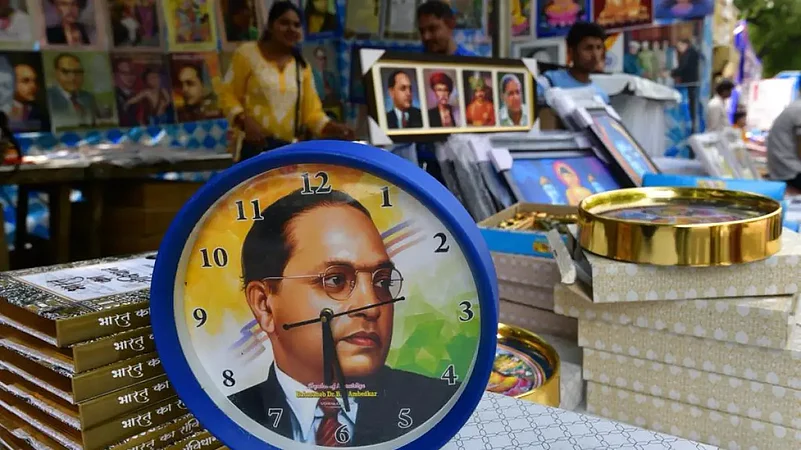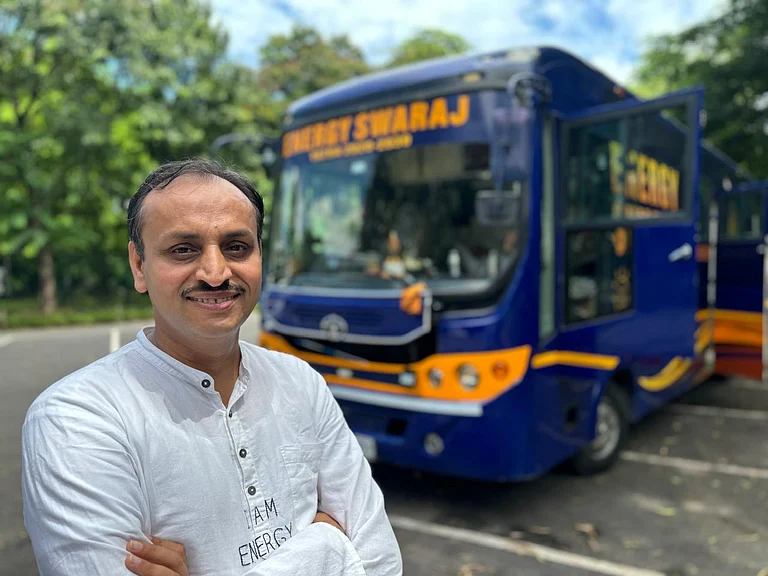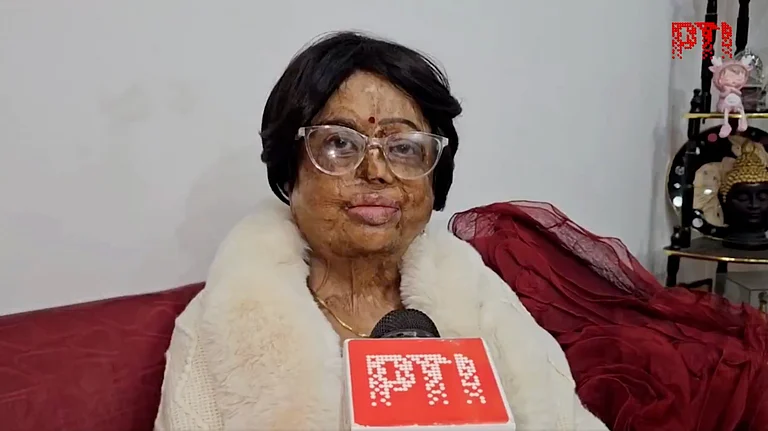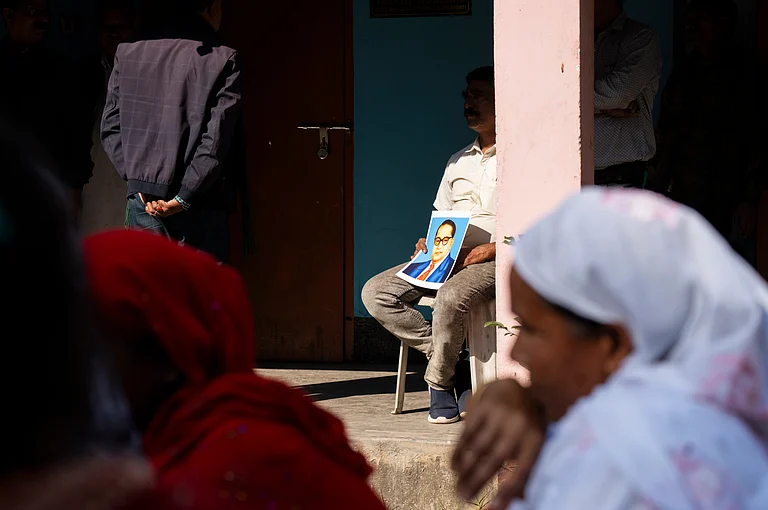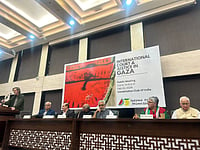In March, Banaras Hindu University (BHU) cancelled the Annie Besant Fellowship that the central university had launched earlier that month. The fellowship, which was meant to encourage its post-graduate students to join PhD programmes at BHU, came under fire from the students of the Bahujan community for having a zero reservation policy. After a tough fight to have a proper representation from the community, the fellowship stood cancelled.
“It is unfortunate that the authority decided to cancel the Annie Besant Fellowship announced for talented students. The protest by BHU Bahujan was done to pursue the administration to obey the rules of constitutional representation and not discontinue the fellowship programme. It is imperative that the concerned authority reconsider their decision and start this important fellowship according to the rules of representation of various sections made by the Government of India,” the BHU Bahujan organisation expressed their discontent over the recent decision on social media.
The BHU Bahujan, formed around three to four decades ago, functions as an ‘unofficial’ body mimicking the tasks of the SC/ST cell aimed at ensuring the rights of students, teachers, staff and faculty members from the Bahujan communities.
“Although there are representatives from the SC, ST and OBC communities in the official SC/ST cell of the university, largely they are apathetic towards the community and deny incidents involving caste-based discrimination happening across the institution. And such incidents have been rampant in BHU since its inception,” says Ravindra Prakash Bhartiya, former president of BHU Bahujan.
Speaking to Outlook, the research scholar points out how subtle causes and effects of caste-based discrimination are whitewashed every now and then and never come out due to politics of hierarchy, controlled motivation of upper caste students and faculty, and lack of due diligence by the authority.
Prakash’s assertion finds a certain amount of truth in the backdrop of the recent hiatus over the death of a 18-year-old Dalit student, Darshan Solanki, whose suicide at IIT-Bombay on February 12, 2023, started whispers around such ‘whitewashing’ of caste politics in India’s premium institutions flocked by upper caste students.
While these institutions admit SC/ST students to abide by the constitutional mandate, they lack a deeper sensitivity towards the principles of social justice.
An interim report released by a 12-member committee to investigate the allegations of caste discrimination following Solanki’s suicide concluded, “Other than the statement of DS's sister, there is no specific evidence of caste-based discrimination faced by DS during his stay at IIT Bombay.”
In its report, the committee that was formed by the IITB Director under Professor Nand Kishore, head of the chemistry department, in connection with the death and allegations surrounding the incident, further added, “...his deteriorating academic performance could have affected DS seriously.”
Initial reports following Solanki’s death had quoted his family alleging that he was being isolated by his friends as he belonged to the scheduled caste. On visiting home, Solanki alleged that the behaviour of his friends changed after they found out about his caste and were 'jealous' as he was pursuing his education free of cost.
Contesting the interim report
The 8-page interim report, which was accessed by Outlook, begins by addressing the academic pressure. It goes on to mention how Darshan started missing classes and did not interact with his peers. But the report carefully eliminates the angle of caste discrimination, mentioning only Darshan's sister's account. It eliminates the testimonies from the various surveys IIT has conducted and even fails to get the statement of his aunt and parents, who have spoken to the media about how Darshan faced caste discrimination.
A member of the APPSC cell (Ambedkar Periyar Phule Study Circle), on request of anonymity, tells Outlook that the internal committee had all the details and testimonies that indicated that Darshan’s suicide was because of acute caste discrimination but they chose to “whitewash” it.
“Firstly, they are trying to portray him as a weak student. But actually, Darshan didn't take coaching to even get into IIT, so it should show how brilliant he was. They are only trying to portray that to hide the truth,” he says and adds, “Then, they go on to say that Darshan was made fun of for asking about how to use a computer. They said he was sensitive about his caste. But why was he sensitive? It was because he was humiliated for his caste.”
Speaking on the report’s mention of Darshan skipping classes, the APPSC cell member says, “Yes, he didn't attend classes after the first semester but he actively sought help for classes in Hindi. Darshan faced difficulty with classes held in English because he was not very fluent in the language. Why is it that he stopped doing that later? [Because] he was not going to be backed [by the institution]. He reached out but didn't get any help or support. What would happen if he got adequate support - that is what the committee should have inquired.”
The study circle member recollects a past incident of another Dalit IIT Bombay student whose suicide had sent shockwaves across the country in 2014 but the institute denied caste discrimination behind the extreme step. “Basically, it is the reiteration of how IIT has always whitewashed caste discrimination. They are trying to write it off the way they did in 2014, in the case of another suicide by a Dalit student, Aniket Ambhore.”
The APPSC member, who is a student at IIT-B, says that at a protest held on March 4, early this month, Aniket's father was also present. “He said he knew exactly what the interim report will say – that the student is weak, and committed suicide because of academic pressure. And the report said exactly that. It was the same conclusion as Ambhore's report.”
An ‘institute of excellence’, amongst the toughest to crack, IIT harbours brilliant minds, united by ambition. But it remains divided by caste.
For many, the Darshan Solanki suicide comes as a poignant case of the kind of prejudice that has been normalised to the extent of casual criticism and routine jokes. It was not simply an incident of depression but one where the student was allegedly unable to deal with the humiliation that came from a certain kind of prejudice rampant in premium institutes like the IITs that starts with the question: “What was your rank?”.
The IIT Bombay case is not an isolated one. Many other prestigious institutes, be it the IITs, DU, BHU, JNU, NLU and others, have reportedly seen similar cases of victimisation due to a so-called lack of ‘merit’ that makes Dalit and Adivasi students ‘undeserving’ of being among the creamy layer of the lot, resulting in low confidence and harassment of the SC/ST students.
Outlook has earlier reported how Dalit rights organisations and activists hint at a larger social issue at the heart of these "elite" institutions which are not devoid of "caste”.
In fact, is it all about caste?
“A teacher asked us during the initial classes, ‘how many people cracked CLAT without any coaching?’ I and a fellow classmate raised our hands. He was from the general category. Looking at me, he said, ‘Of course, it would be easy for you. Koi coaching ki zarurat hi nahi hui hogi (you must’ve not even needed any coaching) because you’ve made it via reservation.”
Anjali (name changed to protect identity), a former Bahujan student of Gujarat National Law University, recalls the disturbing memory from one of her initial days at the college. Speaking to Outlook, she says how often she and her other friends would be discussed by their peers over her admission because her surname revealed her identity.
“It’s the way they look down upon you. I can’t explain how but you just feel it in your bones when it happens to you,” she says, making us wonder, is that what Darshan and other Dalit and Bahujan students who died by suicide also felt?
Months before Solanki’s death, IIT-B’s SC/ST Students Cell had conducted a detailed survey of Scheduled Caste and Scheduled Tribe students in February 2022, in which 388 SC/ST students participated, out of whom, several students described in detail the kinds of caste-based discrimination they faced while on campus.
The survey (confidential), accessed by Outlook, reveals a whopping 37.1 per cent of the respondents were asked about their JEE/GATE/JAM/(U)CEED ranks while 26 per cent of respondents were asked about their surnames --- in order to know their identity. Nearly 25 per cent of students encountered casteist remarks, jokes, memes and derogatory songs. Over 14 per cent of them heard words like “undeserving” and “quota students”.
The study also evaluates the mental health of Bahujan students. It reveals that in IITs, "caste appears in the form of reservations which is seen as a 'loss of merit'. Hence SC/ST students are looked down upon as students with fewer capabilities. While talking to many students, we realised that SC/ST students prefer to hide their identity to escape the stigma of reservation".
Yet, a day after Solanki’s death, the Institute’s Director had said caste discrimination, “if at all it occurs, is an exception” and that “ranks are not asked of students”.
A double jeopardy
Often, when Bahujan organisations try to battle the repression that engulfs SC/ST students, they also have to battle the narrative built around their work.
“Students are often discouraged by their parents to come out and be vocal about the day-to-day bullying they face from upper-caste students. They are often told to stay away from working committees like ours’ because apparently, our intent is absolutely ‘political’ in a negative way. And a lot of times, to break through such a narrative and come out to protect the rights of the people from our community, often becomes challenging,” says Prakash.
Moreover, the lack of representation of students and the apathetic functioning of SC/ST cells in most educational institutions in India puts up a wall where it becomes increasingly fearful of students from the Bahujan community to break out of elusive caste-based ostracisation.
“SC/ST people stay in their own groups, they don’t mix with the ‘general’ people. This is where we feel heard, among our own people,” Anjali continues.
Another member of the APPSC adds, “The SC/ST cells in most cases exist just for the sake of it. They hardly raise questions about the many internal committee reports that are drawn up following the ostracisation of Dalit students. Then what is the point?”






